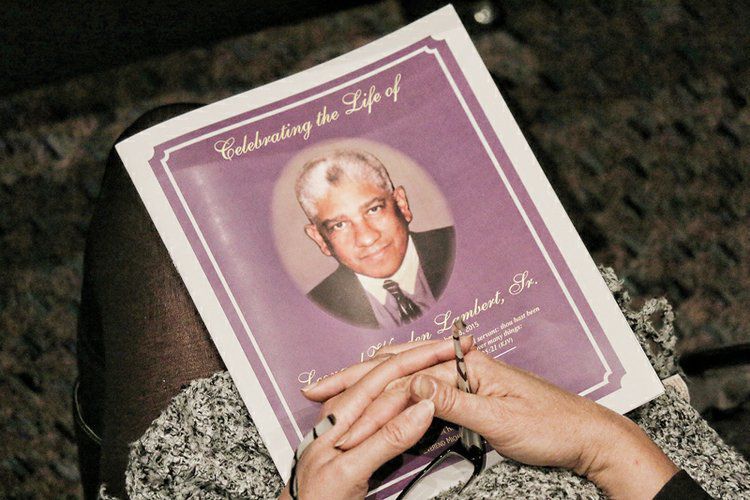How To Protect A Deceased Loved One From Identity Theft
Identity theft is a real risk in modern society. We are constantly dropping bits of information here and there: PIN numbers, account numbers, birth dates, social security numbers. It puts our identities at risk for fraudulent use and the identities of the deceased are just as vulnerable.
A 2012 ID Analytics study
reported that nearly 800,000 deceased Americans’ identities are falsely used to apply for credit cards and cell phone services. In about 1.6 million applications every year, a thief used a deceased person’s SSN by accident. This amounts to a rate of 2,000 cases of identity misuse for deceased people every day.
How Identity Theft Happens
Identity thieves have a number of channels for getting information about a deceased person’s identity. Obituaries, death certificates, and the online Social Security Death Index all present opportunities for these thieves to get the information they need to take fraudulent action.
In rare cases, the thief is a family member or friend who is taking advantage of the situation. This is more common if the deceased person experienced a long period of sickness or declining mental condition. Unresolved disagreements about a loved one’s assets and finances can also lead to identity theft by a disgruntled party.
Identity theft can be a major hassle for the family that is left behind — and a hassle is the last thing anyone needs when dealing with the loss of a loved one. If a thief manages to open a credit card with your deceased loved one’s identity, banks could come after the family if and when the bills aren’t paid. While the family isn’t obligated to pay these debts, it certainly creates a serious headache.
What You Can Do to Prevent Identity Theft
This problem can often go “under the radar” for family members amidst grief of losing a loved one. It is important that you take the necessary steps to prevent this from happening to your family. Here is what you can do to keep your deceased loved one’s identity safe.
1. Notify the Social Security Administration Immediately
Usually, the funeral home that handles your loved one’s funeral plans will notify the Social Security Administration (SSA) of their death. If you want them to do this, it’s important to provide the funeral director with your loved one’s Social Security Number. If you decide to handle this on your own, you can visit this website
to find your local Social Security office, or you can call 1-800-772-1213.
2. Order several copies of the death certificate as soon as you can
It’s important to obtain several copies of the original death certificate when it becomes available because photocopies won’t suffice in most situations. Many businesses will require proof other than the death certificate since death records are public, so be prepared. Order several copies that include the cause of death, as well as some that don’t.
3. Be careful when writing the obituary
Obituaries often unknowingly provide thieves with information that can be used to steal someone’s identity. The birthday and home address of your loved one can be used to open new bank accounts, and public announcement of the memorial service will alert robbers as to when the deceased’s house will be empty. Be very careful about what information you include in a public obituary.
4. Request Credit Reports from Major Agencies
Three major Credit Report Agencies (CRAs) — TransUnion, Equifax, and Experian — will need to be notified of your loved one’s death. Request a final credit report from all three agencies and instruct them to place a “Deceased Alert” in the person’s credit file. You may want to also leave your contact information and request an alert if someone attempt to open credit in your loved one’s name.
The Identity Theft Resource Center (ITRC) offers a letter form
that you can download and send to CRAs to request your deceased loved one’s credit report.
Credit reports will show all of your loved one’s open accounts and pending collection notices, so you can address those in the next step.
5. Notify Financial Institutions by Phone and Written Correspondence
Financial institutions will need to be contacted and made aware of their client’s death. This includes credit issuers, banks, collection agencies, mortgage companies, loan companies, and investment firms.
Only the spouse or executor of estate has the authority to close these accounts in the case of death. Send each institution an original copy of the death certificate, proof of your authority, and a letter instructing them to list the account as “Closed. Account holder is deceased.” If a joint account holder is still living, you will need to instruct these institutions to remove the deceased’s name from all accounts.
Here is a list of information to include in your correspondence with financial institutions:
- Your loved one’s name and SSN
- Your loved one’s last known address and addresses for the past 5 years
- Birthdate and death date
Retain a complete copy of your written correspondence. Send all mail certified and request a return receipt.
6. Notify police of any suspicious activity
If you suspect your loved one’s identity has been stolen, it’s important to contact the police immediately. Report the evidence into the deceased’s police jurisdiction and file a police report. Notify all three CRAs. The ITRC also has a letter form
you can send to collection agencies, creditors, or utility companies in the case of identity theft. They also provide advice
for cases when you personally know the thief.
If you take all of the above steps, your loved one’s identity should remain safe. If the unthinkable happens and your loved one’s identity is stolen, remain calm and consult the ITRC website for further information.




